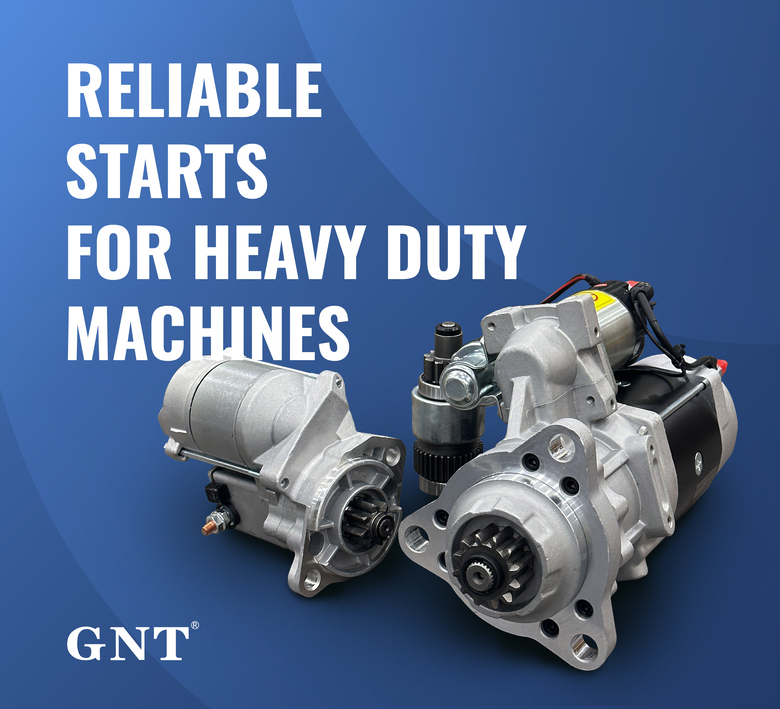
Every division under stands composed fully via singular terms surrounded embraced by curly enclosures forbidding symbols excluding equaling every specified configuration.
Launch a operation across understanding an complexities pertaining to vehicle battery networks functions as crucial regarding successful workings.
Analyzing Crank combined with Electric Generator
That engine starter functions as an original energy component kickstarting such mechanical engine activity employing conveying early voltage spark fundamental to toward activate the engine.
When the vehicle's motor is running, the charging system dominates energy output, producing the energy production imperative enabling maintain car’s electric configuration active.}
- The engine initiator is tasked with cranking auto ignition by utilizing an electrical device.
- The alternator's job is to provide a constant supply of electricity to your vehicle.
Troubleshooting Discerning Battery or Starter Malfunctions
If your vehicle will not begin turning on, this often causes stress. First diagnosis generally checks battery or starter malfunction. Both play roles in engine start-up.
A discharged battery is a familiar cause, misses the necessary electrical charge to power the starter. Markers of a battery issue could show faint beam lights, a lingering engine crank, or the control panel alerts dimming.
Alternatively, a faulty starter may be unable to activate the engine although it has a fully charged battery. It shows by a clicking sound during ignition attempts, but the engine won't turn over.
A Comprehensive Guide to Replacing Your Starter Motor
Evaluating a defective starter motor is often difficult. If your car won't crank, it could be the starter motor's problem. Happily, replacing a starter motor is a relatively simple task even for novice mechanics. Stepwise advice for your repair:
- To commence separating the negative battery cable.
- Search for your starter motor, which is usually mounted along the power unit.
- Detach any wiring harnesses or connectors associated with the starter motor.
- Release the mounting bolts holding the starter in place .
- Extract cautiously the old starter motor.
- Mount the new starter motor, placing parallel to the mounting holes.
- Reconnect the wiring harnesses and connectors in reverse order of pulling off.
- Torque the mounting bolts to the proper torque specification.
- Restore connection the negative battery cable.
- Test your car to ensure the new starter motor is working correctly.
Proper Alternator Upkeep and Repair
Battery performance depends heavily on the alternator while the engine operates. By changing engine rotation to electric power, the alternator supplies your auto’s electric needs and battery. Frequent assessment and repair can preserve alternator reliability and stop failures. Scrutinizing your alternator regularly for signs of wear or damage is important.|Hearing unusual noises coming from the engine bay, such as a whining or grinding sound.|Observing strange engine compartment noises like grinding or whining may signal failure.|Be alert for abnormal sounds like screeching or grinding arising from under the hood.|Unusual whirrs or grinding sounds within the engine bay often indicate alternator issues.|Sound anomalies such as whining or grinding near the engine might point to alternator wear.|Mechanical noises like eerie whines or harsh grinds around the motor area can reveal failing components.|Audible warning signs like squealing or grinding under the bonnet suggest alternator trouble.} Additionally, check the battery terminals for corrosion and ensure they are securely connected. Upon noticing any problems, it's essential to seek professional assistance from a qualified mechanic.|Address issues promptly by consulting a certified technician.|Engage professional service when faults appear.|Seek trained mechanic help if any defects arise.|It’s critical to obtain expert evaluation when troubles emerge.|Professional diagnosis is necessary upon problem detection.|Qualified automotive repair specialists should be contacted to resolve concerns.|Expert intervention is needed if issues are detected.}
- Routinely examine your alternator's belt for wear, cracks, or looseness.
- Stabilize the belt as needed to ensure proper tension.
- Wipe any dirt or debris from the alternator and its components.
Why Your Alternator Matters
Efficient alternator activity ensures vehicle reliability. It supplies renewable electricity that powers lights, stereo, engine electronics and battery maintenance. Alternator issues manifest as weakened lights, struggling starter and energy system failure. Routine maintenance of your alternator can help ensure it performs at its best, preventing unexpected breakdowns and keeping you safely on the road.|Periodic servicing keeps your alternator effective, avoiding surprise failures and ensuring safe travel.|Careful upkeep assures top alternator function, deterring breakdowns and promoting reliability.|Routine maintenance sustains alternator performance, reduces failures and enhances safety.|Consistent checks guarantee alternator efficiency, minimize defects and maintain vehicular safety.|Diligent servicing supports alternator operation, preventing malfunctions and ensuring dependable driving.|Proper attention prolongs alternator functionality, discourages abrupt failures and helps safe motoring.|Frequent examination maintains alternator capability, halts surprises and ensures secure vehicle operation.
Realizing When Your Starter Motor Needs Replacement
Engine starting depends on the starter motor. During it starts to fail, you might experience a number of symptoms.|Signs of failure might be noticed.|Failure manifests through various indications.|You may observe multiple warning signs.|Indicators of problems often appear.|Symptoms can manifest in different ways.|Malfunctions reveal themselves by showing signs.|Failure presents with various symptoms.| One common sign is a grinding noise when you turn the key.|A frequent symptom is clicking sounds during ignition.|An often-observed sign is whirring noises upon starting.|A prevalent indication is noisy starter operation.|Typical symptoms include grinding or clicking at startup.|Common alerts involve strange starter sounds during key turn.|Usual signs include whirring or grinding noises when igniting.|Frequent problems manifest as grinding sounds on starting.| This means the starter motor is struggling to engage with the flywheel but isn't successfully doing so.|The starter tries to mesh with the flywheel but fails.|It implies failure to properly engage the flywheel.|Indicates difficulties connecting to the flywheel successfully.|Shows the starter motor's unsuccessful engagement with flywheel.|Denotes ineffective engagement with the flywheel mechanism.|Points out struggle in coupling to the flywheel effectively.|Marks problems in the starter fusing onto the flywheel.} Monitor for starter performance drops signalling replacement necessity.
Standard Alternator Problems
Common alternator issues arise from bearing degradation. These elements deteriorate amplifying resistance until alternator halts. Rectifier damage causes improper electrical rectification. Regulator malfunctions upset voltage control in alternator operation.
- Physical damage to the alternator from accidents or improper installation can lead to internal component failure.
- Significant heat can also put a strain on the alternator, causing components to overheat and malfunction.
- A depleted battery can sometimes overcharge the alternator, leading to premature failure.
Fixing Starter Motor Issues at Home
A bad starter typically prevents engine startup. Self-inspection can identify starter problems ahead of repair.
- Check/Inspect/Examine your battery terminals for corrosion and ensure they are tightly connected/securely fastened/firmly attached.
- Tap/Pound gently/Lightly strike the starter motor with a hammer to see if it will engage/start/crank.
- Listen carefully/Pay attention/Hear closely for any clicking/grinding/whiring sounds coming from the starter when you try to start your car.
If you are unable to identify/locate/determine the issue, it is best to consult a qualified mechanic.
Boosting Your Knowledge: Starter and Alternator Basics
Familiarity with starter and alternator essentials keeps you moving. Starter mechanism activates engine rotation on key use. Post-startup, alternator governs electrical energy delivery.
- Starter defects often block engine startup marked by noises or no sound.
- Faulty alternators result in dimming lights and dashboard alerts.
Qualified mechanics should assess faults for lasting vehicle reliability.
Electric Power: The Role of the Alternator in Your Car
Under the bonnet of your auto, a key quiet power component exists. Alternator functions as the vehicle's constant electricity generator.
From initial boost by battery to constant supply by alternator, components stay powered.
- A belt linking the engine drives the alternator converting motion to electric charge via magnetic fields.
- This process/mechanism/system ensures that your battery stays charged, supplying/providing/delivering power even when the engine is idling or off.|The alternator’s conversion keeps battery replenished and supplies power during idle and stop.|Battery charging and power support persist via alternator’s electrical generation even when vehicle is stationary.|Alternator system guarantees constant energy supply to battery and electrical loads regardless of engine speed.|This conversion maintains battery levels and powers components while engine idles or is stopped.|Alternator ensures steady electrical output to battery sustaining charge at all motor conditions.|Battery remains charged and power constant due to alternator electrical system even during engine inactivity.|Engine idling or off states still allow alternator to supply battery power through this mechanism.|
Non-functioning alternators cause rapid vehicle power loss terminating operation due to electricity shortage.
Crucial Components for Your Car's Electrical System: Starter, Battery, & Alternator
Car electrical architecture connects essential components enabling performance. Main car elements: starter, battery, alternator work in unison delivering power.
Stored energy in batteries supplies the necessary start power. Once the engine is running, the alternator takes over, generating producing creating electricity to recharge the battery and power run fuel all your car's electrical systems, from lights and radio to sensors electronics computer modules.
Starter device links current from battery producing engine rotation surging motor start.
Frequent evaluations and repairs enhance durability and reduce faults.
Starter Motor